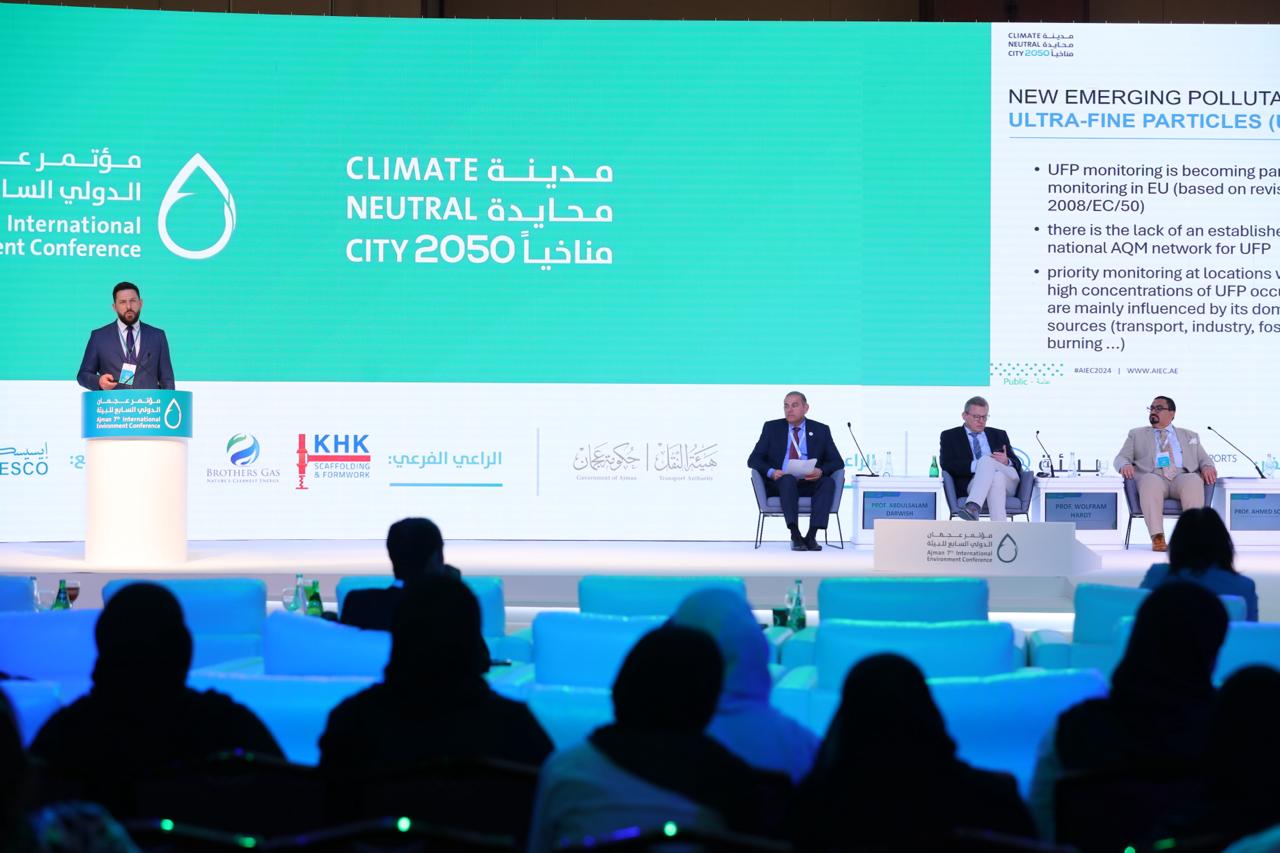Ajman, UAE, Mar 8, 2024, Academicians from across the world have discussed the various ways of reducing carbon emissions in cities and communities as nations try to fight the effects of climate change.

In a panel discussion titled: “SHAPING THE FUTURE FOR NET ZERO CITIES AND COMMUNITIES” at the Ajman 7th International Environmental Conference, which was held in Ajman on Wednesday, March 6, Professor Wolfram Hardt, professor of Computer Engineering at Chemnitz University of technology, called for the importance of investigating AI-based services to adopt a realistic application.
“AI application services are designed to accelerate and develop AI applications, so as to ensure the use of resources in a cost-effective manner; which contributes to reaching global sustainability through advanced AI technology,” said Hardt.
Professor Ahmed Sobaihi, vice president of the Afro-Asian University and professor at Horizon University in Sharjah University City, presented the efforts made by the emirate of Ajman towards achieving environmental sustainability, while touching upon the tireless efforts being made by the UAE towards becoming a green future.
Professor Myles Allen, professor of Geosystems science at the University of Oxford, stressed that the COP28 Conference of the parties laid the foundation stone and charted the way forward, within the framework of the global quest to mitigate and adapt to climate change to reach net zero emissions, consistent with the goals of the Paris Agreement.
For his part, Tomas Prokop, Head Account Manager for Europe, the Middle East and Africa at “Palas GmbH”, spoke about the importance of monitoring fine and ultrafine particles in urban areas in order to achieve improved air quality in cities.
Dr. Shadi Saleh, founding director of the Global Health Institute, said that reaching clear skies in the future calls for reaching net zero emissions, stressing the importance of harnessing high-quality data to monitor the environment and air quality.
Technology and innovation in climate action
In another session, titled: ” ACCELERATING CLIMATE ACTION WITH TECHNOLOGY & INNOVATION & TRANSITION TO LOW-CARBON & INFRASTRUCTURE & WASTE CIRCULAR ECONOMY SYSTEMS “, Dr. Ahlam Khaldoune, from the College of Engineering at the American University of Sharjah, presented a study entitled: “Three-dimensional printed concrete bridge segments reinforced with hybrid smart reinforcement under constant load”.
He explained that the three-dimensional concrete printing (3dcp) has great potential to revolutionize the construction industry by enhancing productivity and reducing environmental impact through the efficient production of improved structures.
Suhail Alghefeli, assistant professor of Environmental Engineering at Zayed University, spoke about the examination of green initiatives in university work, highlighting the importance of the role of youth in the sustainability process
Dr. Rami Issa Al-Ruzouq, associate professor of geomatics engineering at the Department of civil and environmental engineering at the University of Sharjah, spoke about the need to develop a spatial and temporal framework for sustainable planning of buildings based on carbon emissions at the city level.
A number of workshops were also held on the sidelines of the conference, during which OMA Krishnan, an expert at the world green economy organization, reviewed the opportunities available to cities within the framework of their commitments to reach net zero emissions, the most important pillars on which the article is based, as well as the most prominent environmental challenges and providing sustainable solutions to them within the framework of this article.